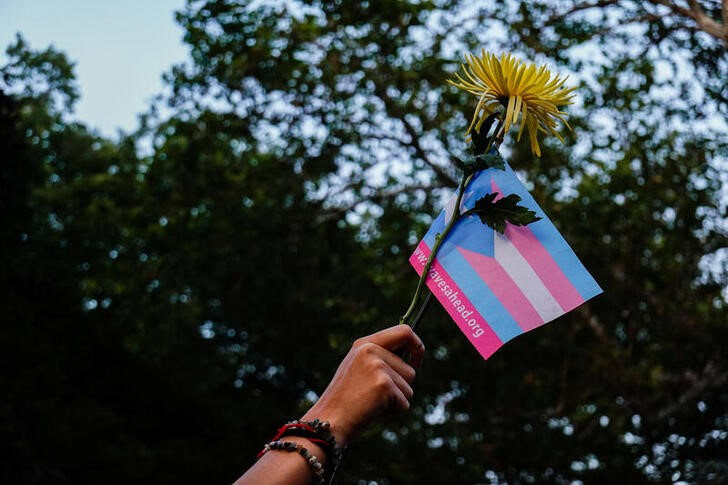By Daniel Trotta and Nate Raymond
(Reuters) - A Montana judge on Wednesday blocked enforcement of the state's recently enacted ban on gender-affirming medical care for minors, marking the latest ruling nationally in battles over state restrictions on treatments for transgender youth.
Missoula County District Judge Jason Marks ruled that the law likely discriminated based on minors' transgender status and infringed on their privacy rights in violation of Montana's constitution.
The law, known as Senate Bill 99, bans treatments such as puberty blockers, hormone therapy and surgery for transgender people under 18.
The judge issued a preliminary injunction blocking enforcement of the law while a lawsuit by three families with transgender children and two medical providers challenging it moves forward, saying that "barring access to gender-affirming care would negatively impact gender dysphoric minors’ mental and physical health."
"We are gratified the judge understood the danger of denying transgender Montana youth access to gender-affirming care as the challenge to this cruel and discriminatory law proceeds,” said Kell Olson, a lawyer for the plaintiffs with Lambda Legal.
Montana Attorney General Austin Knudsen, a Republican, is defending the law in court. His spokesperson, Emilee Cantrell, promised an appeal, citing the "irreversible and immediate harms that the procedures have on children."
Debate over the law brought national attention to the Montana statehouse in April when the Republican majority sanctioned Democratic transgender legislator Zooey Zephyr for breaking decorum with her comment that lawmakers would have "blood on your hands" if they passed the law.
Zephyr was removed from the floor in the final days of the legislative session.

Montana is one of 20 states that have passed restrictions on transgender youth care, defying the medical consensus that gender-affirming care is the best course of treatment for gender dysphoria, the stress caused by the conflict between transgender people's sex assigned at birth and their gender identity.
Federal lawsuits challenging the bans have been met with mixed results. A federal appeals court last month reinstated such a ban in Alabama, and a separate appeals court is expected to rule by Saturday on whether to uphold injunctions blocking bans in Kentucky and Tennessee. Other states bans have been struck down.